A North Carolina Superior Court judge dismissed a lawsuit filed last year by 36 United Methodist churches demanding to sever their ties to the denomination.
Superior Court Judge Richard L. Doughton issued an oral ruling Monday dismissing the suit brought against the Western North Carolina Conference of the United Methodist Church, its board of trustees and Bishop Kenneth H. Carter Jr.
The conference’s motion to dismiss had argued that the First Amendment to the U.S. Constitution prohibits civil courts from becoming entangled in church debates that require an examination of religious doctrine and practice. It also argued that the churches do not have standing because the Western North Carolina Conference, a regional association within the denomination, does not have members.
It was not immediately clear on what basis Doughton agreed to dismiss the suit since his ruling was given orally. But the Western North Carolina Conference nevertheless heralded the ruling.
In a written statement released after the judge’s decision, the conference said: “In all this, the overarching goal of the Western NC Conference is to move through this process in a spirit where we can support, bless, and love each other. A tenet of our faith is that we embrace a Church built through loving relationships rather than uniformity in thought and action.”
Your tax-deductible gift helps our journalists report the truth and hold Christian leaders and organizations accountable. Give a gift of $30 or more to The Roys Report this month, and you will receive a copy of “Hurt and Healed by the Church” by Ryan George. To donate, haga clic aquí.
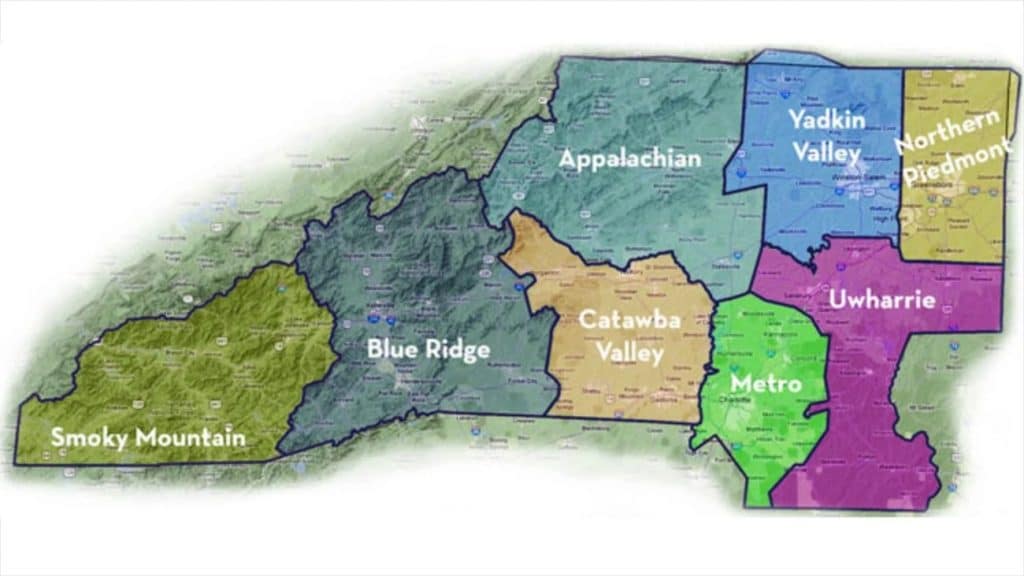
The suit representado a departure from the approved plan for churches wishing to leave a denomination embroiled in a theological splinter over the ordination and marriage of LGBTQ Christians. Most churches wanting to leave the United Methodist Church work through the denomination’s official disaffiliation plan, which gives them until Dec. 31, 2023, to cut their ties.
So far, 1,994 U.S.-based United Methodist churches have left the denomination out of an estimated 30,000 congregations, according to its official tally.
In the Western North Carolina Conference, a region that spans the western half of the state, 41 United Methodist congregations have already been given permission by the denomination to break away from the denomination. An additional 190 churches are expected to be approved for disaffiliation on May 6, when the conference meets for its annually scheduled gathering, a conference spokesperson said.
The 36 churches suing to leave were represented by the National Center for Life and Liberty, a legal ministry with offices in California, Florida and North Carolina. Lead counsel David Gibbs III has already sued on behalf of 100 churches in the Florida Annual Conference and is in talks with several additional conferences.
Gibbs was not immediately available for comment.
In suing in court, congregations argue that the formal exit plan approved by the denomination is too onerous. That plan allows churches to take their properties with them only after paying two years of apportionments — a kind of tithe to the conference — plus pension liabilities.
Some churches, especially smaller ones, have argued that the plan amounts to a form of ransom or extortion.
The United Methodist Church is the country’s second-largest Protestant denomination, numbering 6.4 million U.S. members and 13 million worldwide.
Carter was not immediately available to comment.
 Yonat Shimron es reportero nacional y editor senior de Religion News Service.
Yonat Shimron es reportero nacional y editor senior de Religion News Service.




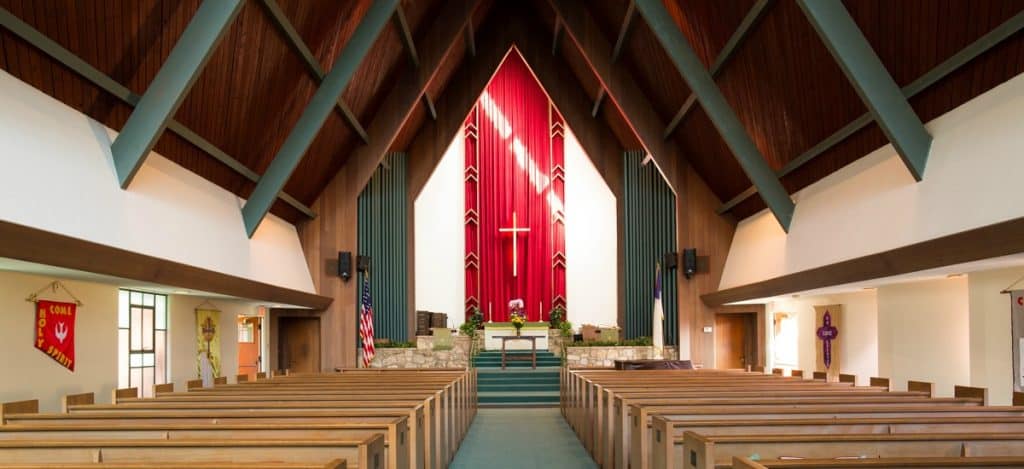
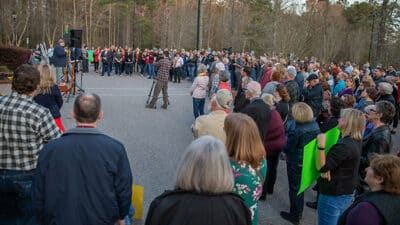
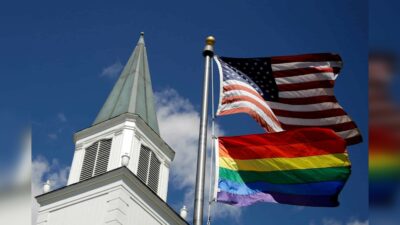
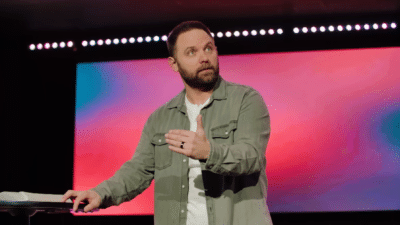


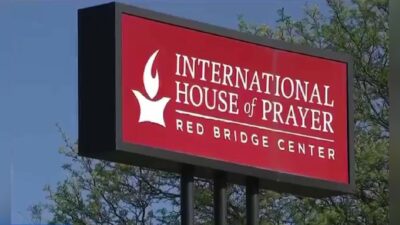


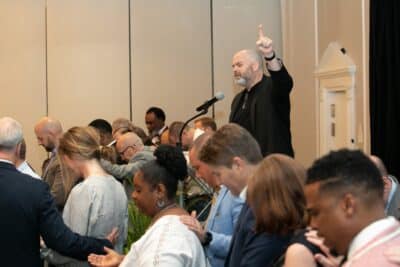






7 Respuestas
“A tenet of our faith is that we embrace a Church built through loving relationships rather than uniformity in thought and action.”
This is typical of the sort of mealy mouthed statements made by liberal denominational leaders. The implication is that those who reject orthodox Christian teaching on human sexuality are “loving” while those who seek to defend it are meanies for wanting people to submit to the clear teachings of scripture and the historic Christian faith. In reality, those who make such statements always end up demanding “uniformity in thought and action” with their revised version of Christianity.
“Some churches, especially smaller ones, have argued that the plan amounts to a form of ransom.”
Not really, if the denomination, or any legal entity not controlled by the local body, owns the title to the church property. Assuming that’s the case here, the UMC plan summarized above actually seems relatively generous to me. It’s not like they’re asking churches to pay market value on prime real estate with a landmark structure. Or refusing to sell it, serving a vacate notice to the congregation, and threatening to sue.
Bottom line: If you’re going to make a bold stand for your beliefs, good for you. But consider the cost, and don’t be surprised when there are sacrifices involved. Also, consider that filing a lawsuit, especially one on questionable legal grounds, might actually damage your cause and even your Christian witness.
Can anybody clarify who is on the property deed of the church as the rightful owner ? Who is the named responsible party(s) on a bank note if a mortgage exists. The answer to those questions should be the determining factor shouldn’t it ??
I can agree that at first glance it seems like ransom or extortion because people faithfully supported their local church, perhaps for a few generations, so a sense of ownership is normal and right.
Yet I do see a possible flaw in that thinking if the WNCC had fronted money to build the local church originally, WNCC is then seeking a return of it’s “loan”.
I am questioning the stance of WNCC….. in court they say their association doesn’t have members……then why do they think the departing churches owe them 2 years of tithes if the are not members?
If I’m not a member why am I obligated to pay ??
“Who Owns the Building? Understanding the Trust Clause”
https://www.bwcumc.org/article/who-owns-the-building-understanding-the-trust-clause/
Long before the present controversies , The Methodist church in Nebraska, Iwas a member of at the time, 50 or 60 years ago, even had a ceremony with the conference bishop presiding of turning the local church property over to the Methodist conference.
The above URL explains what’s going on.
Thank you for the link…it is helpful to understand the legality of it all…….
It raises another question though….do those in the pews know much about the Book of Discpline and how it relates to their desire maintain rights to their physical church while departing from the “secularized” (my term) Methodist Church
If the people in the pews don’t want to be in the United Methodist denomination, it is probably beyond even the power of a Federal judge to keep them there. They can go to another, more congenial church. If enough of them choose to leave, the pastors can figure out how to be a United Methodist church after all the Methodists leave.
I doubt that many Methodists had seen the Book of Discipline, or for that matter any writings on the official policies of the Methodist Church–at least before the time of the Internet.
But I think many members understood that they had to guarantee the pension plans of Methodist ministers. Considering Methodist ministers on the whole did not get the salaries of the leaders of Evangelical churches or IFBs, the Methodist church should have been congratulated for being much more transparent in their financial dealings than many other churches.
I also know that the Conference was able to give some financial help to individual churches. Sometimes the Conference could geta a fundraising type of minister installed to get a project done. The spending and other services weren’t all in one direction.
I don’t remember there were many–serious–complaints about the ownership of church property by the Denomination